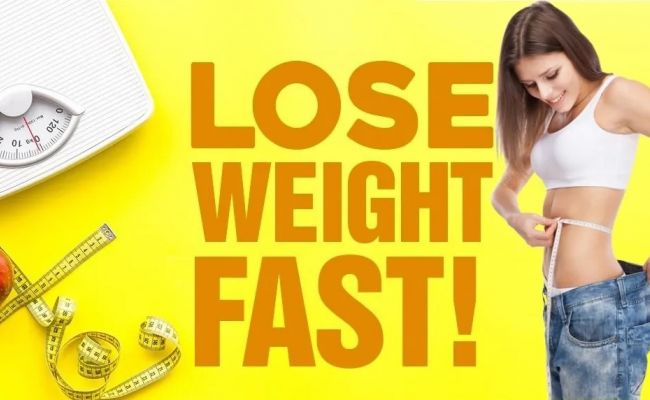- According to the World Health Organization, 49% of people aged eighteen and up were overweight in 2016.
- The National Council on Aging (NCOA) discovered that people who are overweight are more likely to develop depression, bipolar disorder, and anxiety disorders.
- The good news is that both being overweight and obesity are avoidable.
- If you are unable to eliminate empty calories from your diet, try calorie deficit: consume fewer calories, and fewer carbohydrates, eat lean proteins and avoid poor food choices.
- Consider HIIT (high-intensity interval training) or weight lifting: with proper action or guidance from your personal trainer, you will have better strength training, lean muscles, or even burn fat post-workout.
According to the World Health Organization, 49% of people aged eighteen and up were overweight in 2016, with 13% diagnosed with obesity, negatively impacting their health. Furthermore, according to their research, the majority of the world’s population dies from obesity and being overweight rather than underweight.
Table of Contents
How to Lose Weight Quickly in Two Weeks
Is it possible to lose weight in two weeks? It is possible, but it differs from person to person.
It is caused by a variety of factors, including one’s own body chemistry, current physical health status, physical activity level, and eating habits.
It means that healthy behaviors aren’t absolutely necessary for good health.
Experts say that eating healthy is important for promoting weight loss and achieving a healthy body weight.
Now, how can you successfully lose weight while also protecting yourself from things that could harm your overall health?
Reduce Your Calorie Intake
How many calories do you consume each day? The majority of weight gain is caused by a high-calorie intake, but your body burns far fewer calories.
If you are unable to eliminate empty calories from your diet, try calorie deficit: consume fewer calories, and fewer carbohydrates, eat lean proteins, and avoid poor food choices.
To begin, avoid foods and beverages with added sugar. Second, stay away from foods high in refined carbohydrates.
Researchers discovered that these foods are high in calories that are difficult to metabolize, particularly if you have a slow metabolism.
Maintain a well-balanced diet and good eating habits.

Soft drinks and junk food, on the other hand, are high in added sugars, preservatives, and stored fat.
Depending on your digestive system, healthy alternatives include a low-fat diet, a low-carb diet, and a high-protein diet.
Whole grains can also help you reduce your carbohydrate intake.
It not only helps you lose weight, but it also provides a lot of good nutrition.
Furthermore, being aware of portion sizes and choosing healthier alternatives help to control fat by avoiding adding more calories to your diet.
Make a Workout Schedule
Working out is another way to achieve healthy weight loss.
It is not enough to have regular physical activity exercise when planning your workout.
Consider HIIT (high-intensity interval training) or weight lifting: with proper action or guidance from your personal trainer, you will have better strength training, lean muscles, or even burn fat post-workout.
Of course, physical activity aids in weight loss, but some people may lack the energy to perform intense cardio exercises.
Mitchelle Morgan, a medical writer for HealthCanal, proposed a solution for such issues: supplements can be used in conjunction with a healthy diet and physical activity to increase stamina, burn excess fat, and help lose maximum weight while maintaining muscle mass.
Drink Plenty of Water
It is undeniably true that adequate water intake is critical to maintaining a healthy body. This, too, is part of a healthy diet.
This can be used to help a person manage stress and avoid physical health problems such as high blood pressure, heart disease, and chronic health conditions.
As a result, it is critical to stay hydrated at all times.
Water is there to help. It not only regulates blood flow and improves digestion, but it also strengthens your immune system.
Furthermore, there is scientific evidence that having enough water inside your body helps you sleep, whereas not getting enough sleep allows you to gain weight.
Weight Loss Diet Recommendation
It is widely accepted that eating healthy fats, proteins, fruits, and vegetables, as well as some low-calorie meals, is the most common recommendation for people who want to lose weight.
You should be mindful of your food intake in general, reducing salt and caloric intake.
Also, experiment with alternative diets such as intermittent fasting.
Once your calorie intake is under control, you will be able to burn a few extra calories and lose weight faster while avoiding health problems.
Know About:
A Reminder Regarding the Safe Weight Loss Procedure
While changing your diet has many health benefits, drastic changes may not produce satisfactory results.
It is good practice to remember that there is no magic trick for it.
Appreciate each step forward to avoid shocking your body and increasing your risk from changes you make.
Conclusion
It can be difficult to lose weight quickly, but it becomes even more difficult if you try to achieve results at an unrealistic speed.
A healthy diet and an active lifestyle will undoubtedly lead to a longer and healthier life.
So, if you follow these steps, you will not only lose weight but also improve your overall physical health.
Feel free to achieve your desired weight because it will improve your overall well-being, leading to health promotion of a healthy mind, healthy body, and freedom from chronic conditions.




